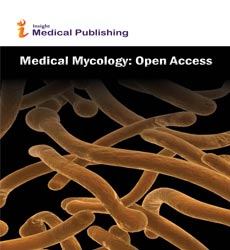Abstract
Construction of mutant strains with inducible mating type genes to identify the A mating pathway in Flammulina velutipes
Mating is the initial step of sexual development in higher fungi and involves the fusion of two compatible mycelia, which brings together complementary sets of mating type genes; HD and PR mating type genes. This pairing of complementary HD and PR genes results in activation of the respective A (HD) and B (PR) mating type pathways. Although HD and PR mating type genes have been identified in many fungi, their downstream pathways have remained largely unknown. The present study aims to develop a tetracycline inducible gene based system for basidiomycetous fungi, followed by the construction of mutants with inducible HD and PR mating type genes to study these pathways in detail. We successfully adapted the doxycycline (a tetracycline derivative) inducible promoter system (TET-On) using two expression units in a single vector; the reverse tetracycline transactivator (rtTA2S-M2) gene that encodes the doxycycline binding TetR protein, and the tetO7 (TetR binding) sequence fused with a minial gpd promoter to control expression of the gene of interest. The functionality of this system was confirmed in F. velutipes with two different reporter genes, one for a Green Fluorescent Protein (gfp) and one for a Red (dTomato). Next, we selected complementary HD and PR mating type genes for F. velutipes strain L11, that were subsequently cloned in the doxycycline inducible system. The first doxycycline inducible HD mating type mutants have recently been obtained and were confirmed by qPCR. These mutants are currently being analyzed, while transformation experiments for inducible PR and HD+PR F. velutipes mutants are underway.
Author(s):
Irum Mukhtar
Abstract | PDF
Share this

Google scholar citation report
Citations : 164
Medical Mycology: Open Access received 164 citations as per google scholar report
Abstracted/Indexed in
- Google Scholar
- China National Knowledge Infrastructure (CNKI)
- Directory of Research Journal Indexing (DRJI)
- WorldCat
- Publons
- Geneva Foundation for Medical Education and Research
- Secret Search Engine Labs
Open Access Journals
- Aquaculture & Veterinary Science
- Chemistry & Chemical Sciences
- Clinical Sciences
- Engineering
- General Science
- Genetics & Molecular Biology
- Health Care & Nursing
- Immunology & Microbiology
- Materials Science
- Mathematics & Physics
- Medical Sciences
- Neurology & Psychiatry
- Oncology & Cancer Science
- Pharmaceutical Sciences
